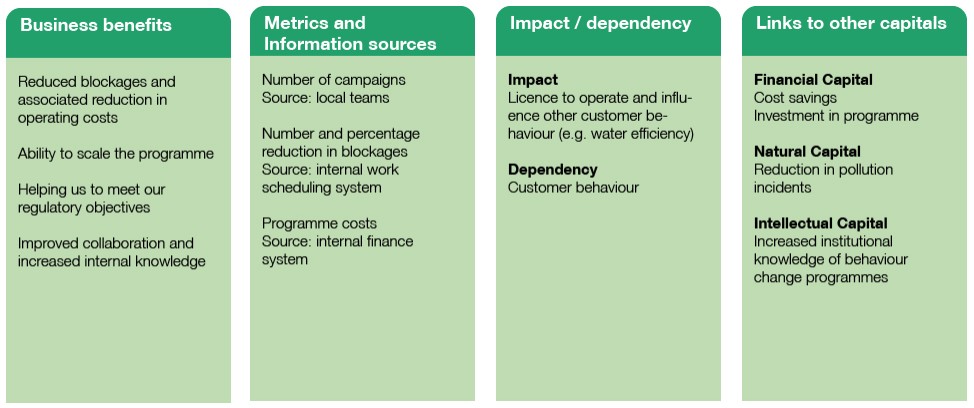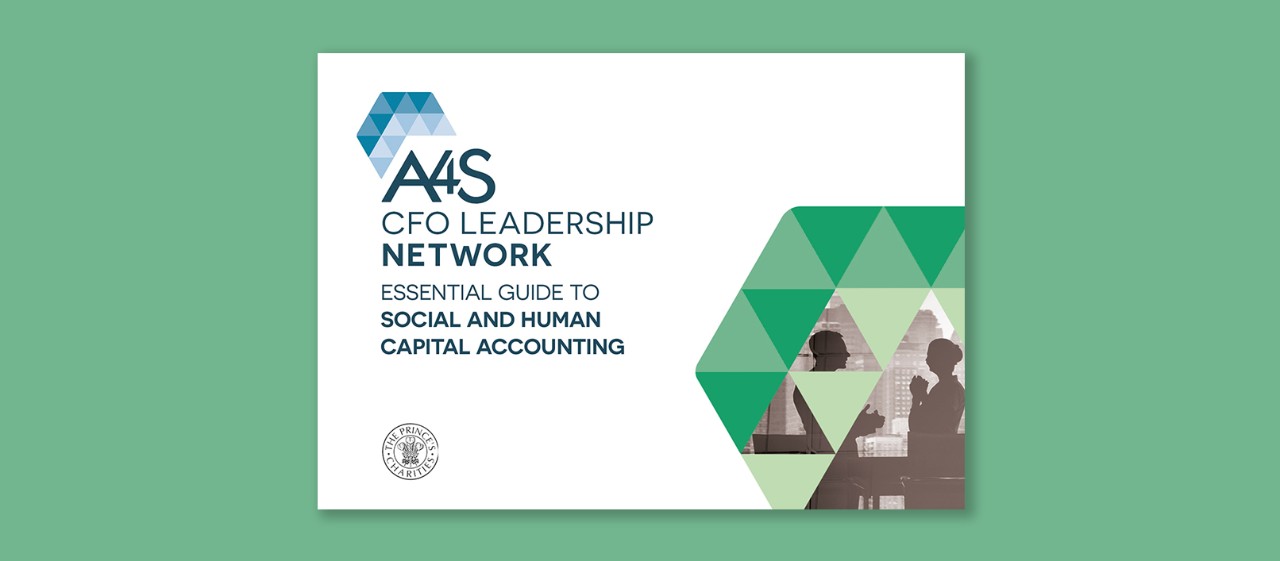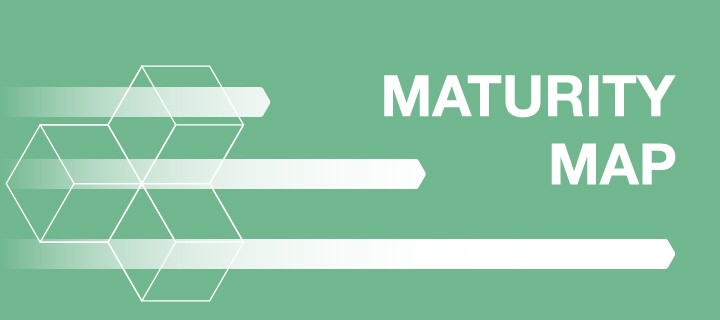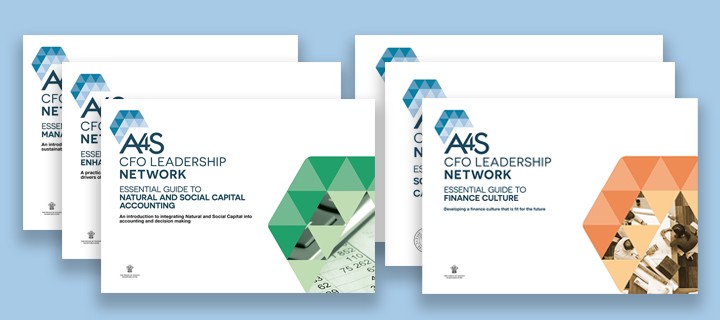Anglian Water: Social and Human Capital
KEY BUSINESS BENEFIT
Reducing the cost base
“A business case developed with finance showed that we could save four to five times expected programme costs by implementing an initiative focused on customer behaviour.” Anglian Water
WHAT?
A key part of our social capital is the relationship with our customers as the smooth operation of our network is dependent on their behaviour. Each year there are approximately 30,000 blockages across our 76,000km of sewers. About two thirds of these are avoidable, caused by people putting fats, oils, greases and unflushable products down toilets and sinks. We spend £13m a year unblocking them. ‘Keep It Clear’ is a programme to educate and inform customers so they can play their part in keeping sewers clear and ultimately keeping their bills lower.
WHY?
Despite a range of measures being used previously to address the blockages, we had seen limited success. A business case developed with finance showed that we could save four to five times expected programme costs by implementing an initiative focused on customer behaviour. The programme has also been scalable and we have campaigns running in 23 locations with an average blockage reduction of 37%, and an average of 52% in those areas where campaigns have been running for more than a year. This is compared to a 14% reduction in locations without ‘Keep it Clear’ programmes.
HOW?
We implemented a pilot to prove the business case which showed a two third reduction in blockages. We now have a well established process for setting up a programme:
- Conduct primary research: identify root cause and hot spots
- Form focus groups: explore current patterns of behaviour
- Conduct before and after surveys: gather more evidence and track changes
- Tailor messages to specific users: distilled from focus groups and surveys
- Identify and fund a local group: work with them to implement the project
- Conduct targeted face to face visits: focus on biggest impact areas




